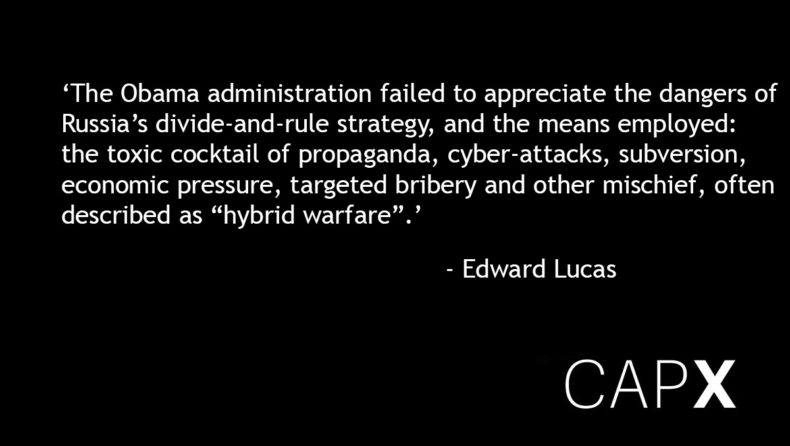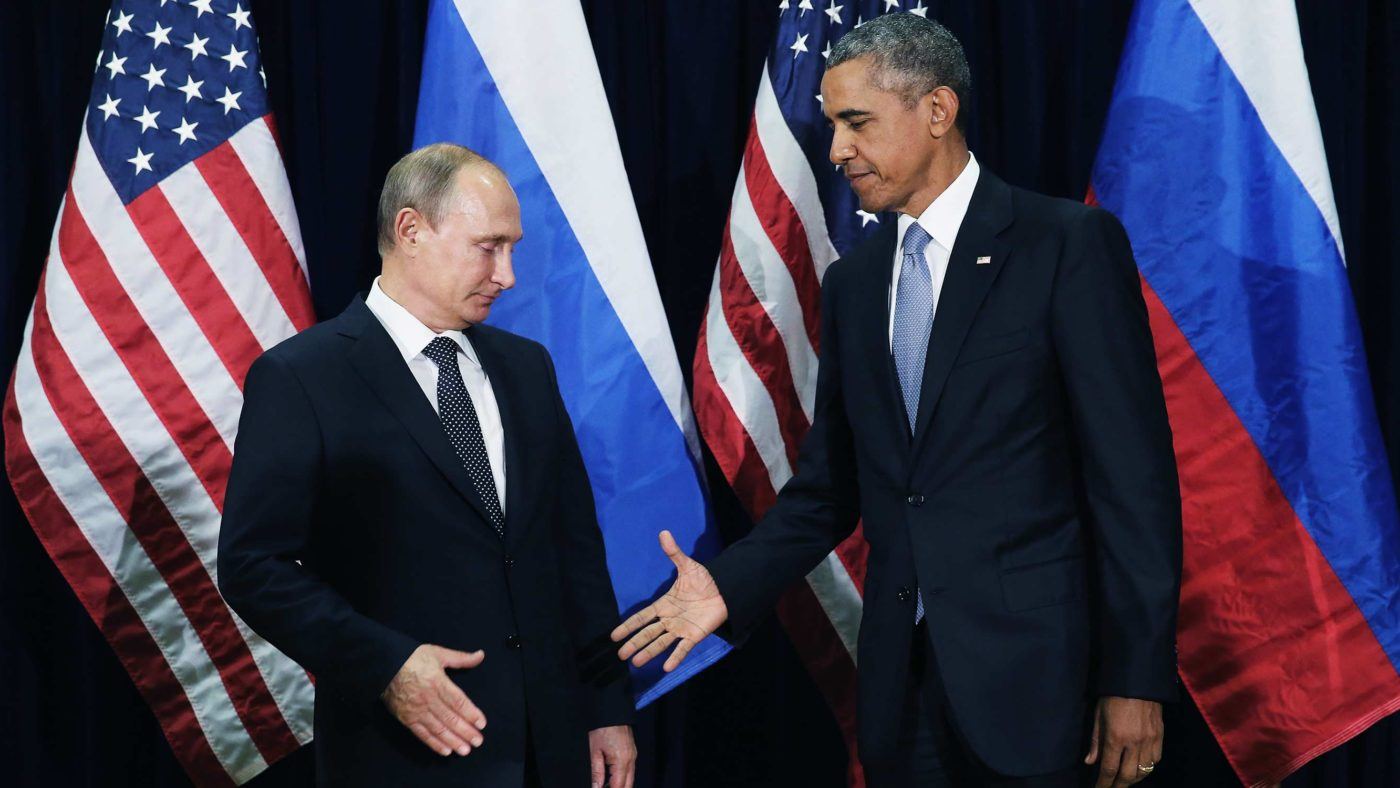Barack Obama aimed to reset America’s place in the world. Instead he dislodged it. His soaring rhetoric — displayed in speeches in Cairo in 2009, or in Estonia in 2014 — could not outweigh the bleak realities of power.
America is relatively weaker than it was, its rivals and adversaries stronger. Countering that trend is entirely possible, but would require stronger alliances. Instead, during the eight years of the Obama administration, America’s ties with friendly countries became weaker.
The record is not all bad. The Iran nuclear deal, for all its shortcomings, has delayed what had seemed like an inevitable military strike on that country’s bomb-making capability.
The thaw with Cuba ended nearly six decades of isolation and confrontation, which had signally failed to topple the communist regime. Perhaps a different approach will work better.
In Europe, Mr Obama used his colossal popularity to persuade a reluctant Germany that NATO should start accepting that a military threat from Russia existed, and drawing up limited contingency plans for defending the Baltic states and Poland.
Astonishing as it may seem in today’s climate, for the first five years of those countries’ NATO membership, that was not the case. Russia was officially designated a friend, and no thought could be given to any possible conflict.

But against these successes, the other side of the ledger is covered with red ink. Grievous security breaches at home damaged allies’ interests. Edward Snowden took not only the secrets of the NSA to Moscow, but also many from Britain’s GCHQ.
The Chinese hack of the Office of Personnel Management, an ill-guarded administrative backwater, jeopardised the personal information of 20m American employees — but also many British and other officials with American security clearances. Chinese (and Russian) spy-catchers now can target a whole generation of Western intelligence officers.
Abroad, America largely abdicated from the Middle East and Afghanistan and misread the threats from both Russia and China. The “pivot” to Asia was a particularly ill-conceived move. Asian allies were disappointed by the lack of substance, European ones disheartened by what was perceived as a snub.
What the administration fundamentally failed to appreciate is that American power is based on alliances. No country in history has had such an abundance of allies. True, they can be maddeningly needy, inconstant or embarrassing. But without care and feeding, they get worse. All too often the Obama administration saw its alliances through the wrong lens: as a matter of transactions, not of deep and enduring loyalties.
This was partly the wrong choice of words. Administration officials seemed even to eschew the word “ally”, preferring the term “partners” instead. An ally is a country who sends sons and daughters to die on your battlefields. A partner is someone you do deals with. There’s a big difference.
Another problem was tribalism. The central and east European countries were punished, especially at the beginning of the Obama years, for having been too close to the Bush administration.
This was exceptionally unfair. Decision-makers who through gritted teeth, and at considerable cost in political capital, had gone along with the ill-run and misconceived war in Iraq out of loyalty to the Atlantic Alliance — only to find themselves cold-shouldered by the new administration.
The third and biggest problem was complacency about the security threats which allies were facing. Ever since the early 1990s, people in countries such as Estonia and Poland have been warning the West about Russia. They were not heeded; instead — particularly in Washington, DC — they were patronised and belittled.
The Obama administration’s “reset” with Russia in 2009 was in itself a defensible diplomatic gambit. It brought some benefits such as a land route for military supplies to Afghanistan. But it was soon clear that the thaw was illusory. Rather than admit that the reset had failed, America continued to treat Vladimir Putin as at worst a nuisance, not a threat. Ukrainians paid a bloody price for that in 2014. Others may do so in future.
The failure was partly in appreciating Mr Putin’s strategic intent. True, Russia is not the Soviet Union. It does not want to conquer the Baltic states or Poland. Nor does it want to destroy the West: Kremlin cronies need it as a place to invest the money they loot. But Russia does want to divide the Atlantic alliance and the EU, and sow discord and mistrust within Western countries’ political systems.
The Obama administration failed to appreciate the dangers of Russia’s divide-and-rule strategy, and the means employed: the toxic cocktail of propaganda, cyber-attacks, subversion, economic pressure, targeted bribery and other mischief, often described as “hybrid warfare”.
If the administration had taken this a bit more seriously, Russia might not have deployed this arsenal so successfully in the American presidential election, leading to the election of Donald Trump, who aims to up-end so much of Mr Obama’s legacy.
Again and again, the United States missed the story. It continued pulling its forces out of Europe, long after it was clear that a resurgent Russia required a bigger presence, not a smaller one. NATO’s credibility has been stretched dangerously thin as a result. It was irresponsibly sanguine about Russia’s ability to project power beyond its borders.
The invasion of Crimea caught America napping. So did Russia’s military adventure in Syria. A White House official told me confidently that this would be “Russia’s Vietnam”. All America had to do was sit back and let Russia stew in the mess created by its over-reach. The mess is indeed great, but it is we who are stewing in it.
The Obama administration rightly saw that economic power was the foundation of political strength. But it failed to secure either the TransPacific Partnership, or the Transatlantic Trade and Investment Partnership, which would have added a powerful new economic dimension to America’s two most important alliances.
One common thread in all these mistakes is the chilly, detached, almost solipsistic approach of the White House inner circle. Mr Obama never made the effort to reach out to Republican lawmakers; instead he preferred tribal loyalties to Congressional Democrats. Advisers such as Valerie Jarrett saw foreign policy only in terms of how it affected the domestic agenda.
Another was a failure to understand how much words matter. If you are not going to back your grandiloquent promises — “red lines” in Syria, for example, or promoting human rights and democracy in the Arab world — with the full faith and credit of the United States, then it is better not to make those promises in the first place.
Similarly, if you want Asian allies to trust you, it is a good idea to make it clear that you take your oldest and deepest commitments, to European security, with iron-clad seriousness.
The big question now is whether Mr Trump’s full-throated desire to restore American greatness will be similarly lacking in practical effect. He tweets rather than orates, but the problem is the same: deeds must match words.
Whereas Mr Obama merely neglected America’s allies, however, Mr Trump seems to regard them as an irrelevance at best, or freeloaders at worst. That will make his job a lot harder.
It may yet come right. But after covering European security for 30 years, I have never been gloomier about the future of our most important ally. We need to prepare for a post-American, post-NATO European security order. Our counterparts in Asia need to start making their own arrangements too. It is going to be messy, costly and dangerous, and a large share of the blame rests with the man now packing up at the White House.


